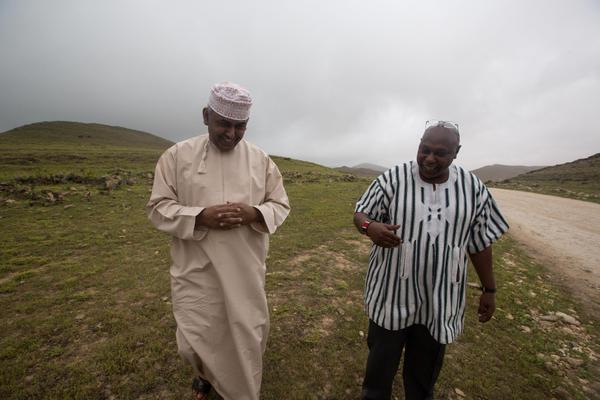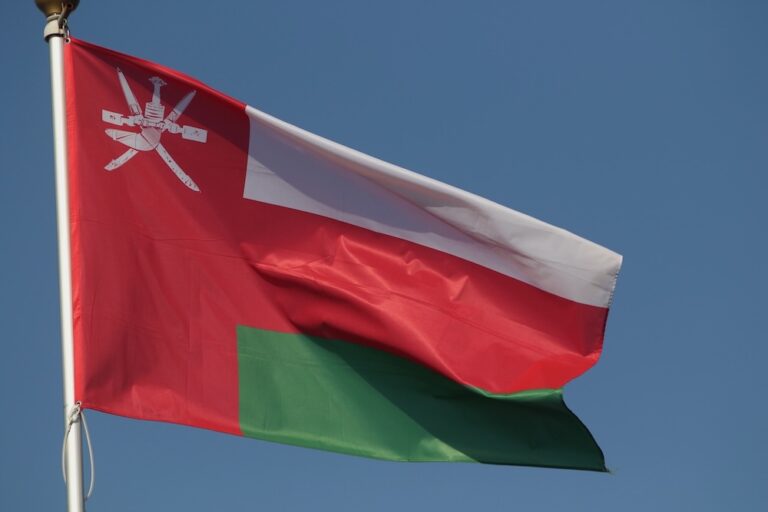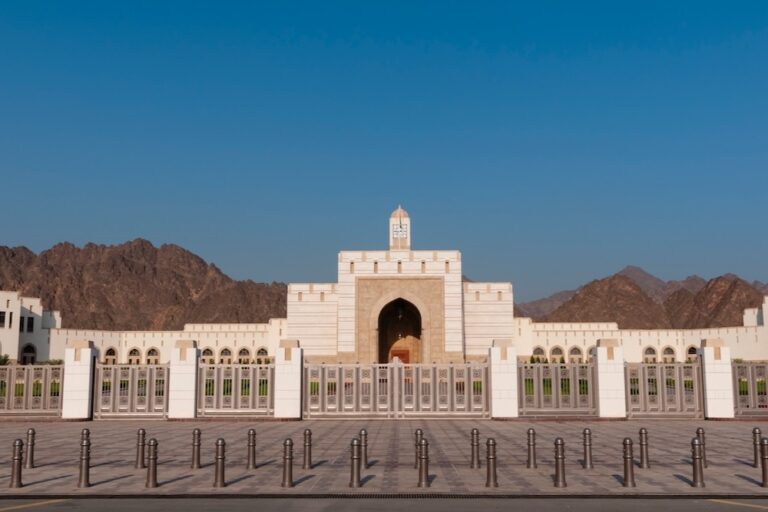Oman's security forces routinely harass, detain, and imprison rights defenders, social media users, and others critical of governmental policies, Human Rights Watch said.
This statement was originally published on hrw.org on 19 December 2014.
Oman’s security forces routinely harass, detain, and imprison rights defenders, social media users, and others critical of governmental policies, Human Rights Watch said today. Omani authorities should initiate reforms to bring Oman’s laws into compliance with international standards, Human Rights Watch said.
Researchers documented a pattern of arrests and detentions that violated fundamental political rights, including free speech. Officials relied on laws criminalizing “illegal gatherings” and “insulting” Sultan Qabus bin Said Al Said, the country’s ruler, to convict hundreds of pro-reform demonstrators in 2011 and 2012. Sultan Qabus later pardoned most of those convicted, but security forces continue to harass and detain peaceful activists, relying on overly broad laws that criminalize the peaceful exercise of basic rights.
“The pattern of arrests and interrogations in Oman has clearly had a chilling effect on the ability of Omanis to speak out,” said Joe Stork, deputy Middle East and North Africa director at Human Rights Watch. “Oman cannot claim to be a rights respecting nation when authorities routinely arrest peaceful dissenters.”
Oman should immediately release everyone detained solely for exercising their rights to freedom of expression, association, and peaceful assembly, Human Rights Watch said.
On September 13, 2014, Maina Kiai, the UN special rapporteur on the right to peaceful assembly and association, issued a statement after his first country visit to Oman in which he noted a “pervasive culture of silence and fear affecting anyone who wants to speak and work for reforms.” He said the authorities should urgently repeal or amend “laws which have a detrimental impact on the exercise of peaceful assembly and association rights.”
In the most recent case, on December 10, security forces arrested Said al-Jaddad, 46, a human rights activist and pro-reform blogger, in the southern city of Salalah without an arrest warrant, a source familiar with al-Jaddad’s case told Human Rights Watch. Al-Jaddad has repeatedly called for political and social reforms in posts on Facebook and on his blog. The source said the officers impounded al-Jaddad’s car and cell phone, and transferred him to an unknown location. At about 11 p.m., security officers, some in civilian clothes, raided al-Jaddad’s home and took away some of his personal belongings. His family has not heard from him since, the source said.
On December 16, al-Jaddad’s family visited the Public Prosecutor’s Office in Dhofar to seek information, but the authorities refused to provide any, the source said. Al-Jaddad’s family is concerned about his well-being because he has a heart condition, high-blood pressure, and digestive problems. On December 12, Kiai, who met al-Jaddad during the September visit, expressed concern regarding al-Jaddad’s arrest.
Disturbing report out of Oman – detention of Saed Jadad, whom we met with in September http://t.co/3OxYL74hCu pic.twitter.com/SFpFnjbtfO
— Maina Kiai (@MainaKiai_UNSR) December 12, 2014
Authorities had prevented al-Jaddad from boarding an international flight from Muscat on October 31. Al-Jaddad told Human Rights Watch at the time that the authorities gave him no reason for the travel ban. He had previously been arrested several times on charges including calling for protests, “heaping discredit” on state officials, and “undermining the status and prestige of the state,” but had not been put on trial.
Activists, journalists, and bloggers told Human Rights Watch that the continuing harassment has had a chilling effect on freedom of expression in Oman. Oman’s criminal procedure code, which empowers authorities to detain people for up to 30 days without charge, facilitates the harassment.
Human Rights Watch wrote to the government on September 25, expressing concern and requesting information regarding cases of targeted activists and dissidents, but has had no response.
The Arab Charter on Human Rights, to which Oman is a party, guarantees “the right to information and to freedom of opinion and expression, as well as the right to seek, receive and impart information and ideas through any medium” (article 32). Article 14 of the charter requires the authorities to inform detainees immediately of the reasons for their arrest, inform them of any charges against them, and promptly take them before a judge and permit contact with family members. Oman has not yet ratified other major international rights treaties such as the International Covenant on Civil and Political Rights.
“Cooperation and engagement with UN rights bodies are steps in the right direction, but they are no substitute for concrete and meaningful rights reform,” Stork said. “Oman should stop arresting its critics and join all relevant international rights treaties as a first step to signaling its commitment to real reform.”
For additional details about recent cases, the need for legislative reform, and concerns about freedom of assembly and association, please see the full statement on HRW’s site.



